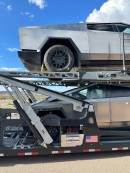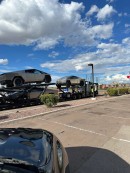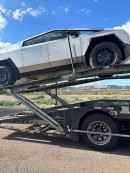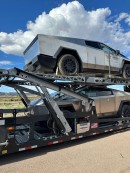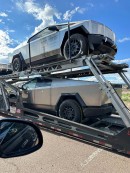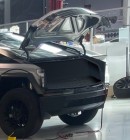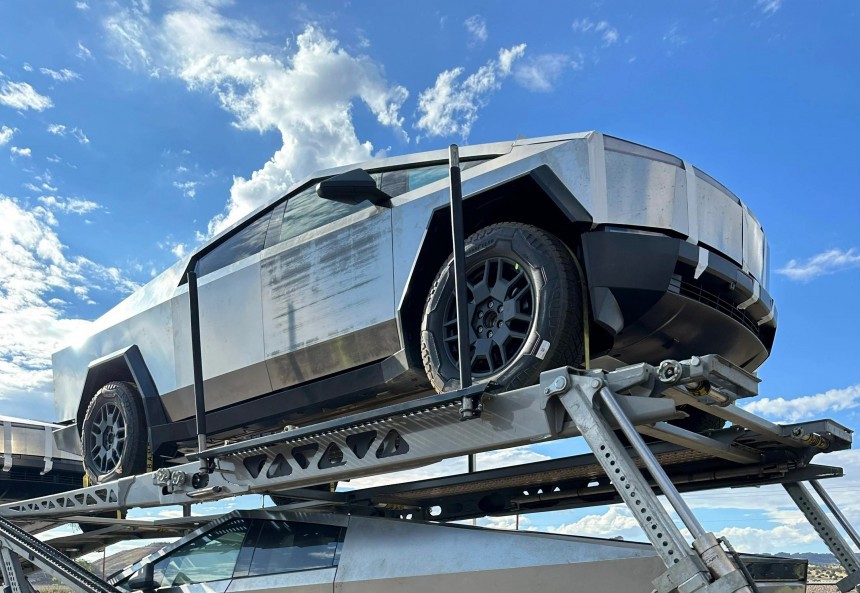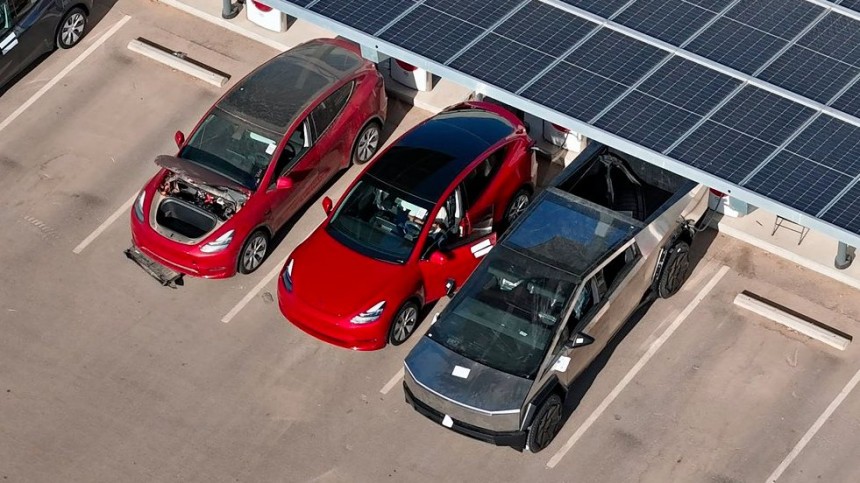The electric auto era that should have been here years ago is still a long way from fully arriving. Electric vehicles, in general, and electric passenger cars, in particular, still have to overcome serious hurdles to universal adoption.
This could be one of them, though it's far from the most important. This is more like the final straw that breaks the camel's back, an apparent non-issue that works against EVs.
The lack of proper infrastructure and technology are the biggest issues behind the slow adoption of electric vehicles, despite serious push from local governments and the biggest automakers out there. But men's perception of their own masculinity or, better said, their understanding of masculinity as a learned behavior could also play a part in the slow adoption.
A recent study conducted by Dr. Michael Parent of the University of Texas at Austin (UT) looks at masculinity contingency and the way it influences consumer behaviors and lifestyles. The study is far from conclusive, having been conducted on a small group of 400 cis-gendered U.S. males and dealing with a hypothetical situation, and doesn't have the support of concrete scientific data. However, it's the first sign pointing in the general direction of a link between one's concept of masculinity and one's attitude toward electric vehicles.
In much simpler words, men might be reluctant to buy an electric vehicle because they don't consider it "manly" enough. As such, buying an EV would harm their manly image, so they would rather stick to an ICE (internal combustion engine) vehicle even when fully aware of climate change issues and how their individual choice might make a (very small) difference.
Masculinity contingency is a relatively new concept, having been introduced by Burkley, Wong, and Bell in 2015 as a way to explain the degree to which one man's sense of self-worth was directly dependent on his sense of masculinity – or his idea of the kind of masculinity he should project or how he lives up to society's expectations of him as a man.
The MCS (Masculinity Contingency Scale) looks at the way in which cultural standards of masculinity influence a man's self-worth. These cultural standards range from toughness and anti-feminine qualities to social status. It's the age-old belief that "boys don't cry" because only girls do, if you want an even more simplistic explanation of the theory.
"Consumer good purchase decisions are made, to a degree, with consideration toward how those purchases reflect personal identities," Dr. Parent writes. "Among men, endorsement of masculinity contingency was linked to lowered preference for EVs."
The researcher notes that this belief could be corrected through advertising while conceding that the study is inconclusive, as neither is the link between lowered preference for EVs and climate change fundamental. If these men woke up tomorrow with a new perspective on EV ownership, it wouldn't solve all climate change issues. But it would be one item less to compound on all the other climate change issues, Dr. Parent says in a statement to one media outlet.
Speaking to the same outlet, psychologist Louise Goddard-Crawley points out that traits associated with masculinity since the dawn of humanity, like dominance and physical strength, are often associated with "traditional vehicles" with loud and powerful engines.
It makes sense, then, for a man holding traditional views to value this type of vehicle over the silent electric ones. Just like one man with traditional views wouldn't put on a pink t-shirt to ride a frilly bike to work, he'd be reluctant to buy an electric vehicle.
Again, the study is not conclusive and not backed by scientific data. But it does show that the road to wide EV adoption is a long and winding one, riddled with more obstacles than the EV pioneers probably anticipated. Some of these obstacles are huge and definitely no joking matter, like the issue of limited range or battery fires, prohibitive pricing, or sustainability concerns, while some are on the frivolous side, like some men's belief that these cars aren't manly enough.
EVs still have a long way to go until they replace ICE vehicles for a variety of reasons, but you didn't need a study to know that.
The lack of proper infrastructure and technology are the biggest issues behind the slow adoption of electric vehicles, despite serious push from local governments and the biggest automakers out there. But men's perception of their own masculinity or, better said, their understanding of masculinity as a learned behavior could also play a part in the slow adoption.
A recent study conducted by Dr. Michael Parent of the University of Texas at Austin (UT) looks at masculinity contingency and the way it influences consumer behaviors and lifestyles. The study is far from conclusive, having been conducted on a small group of 400 cis-gendered U.S. males and dealing with a hypothetical situation, and doesn't have the support of concrete scientific data. However, it's the first sign pointing in the general direction of a link between one's concept of masculinity and one's attitude toward electric vehicles.
What is masculinity contingency?
Before we laugh this study off as "manly men like cars that go vroom vroom!," preferably with some black exhaust while vroom-vrooming, some context is necessary. Because there might be more to this than meets the eye.Masculinity contingency is a relatively new concept, having been introduced by Burkley, Wong, and Bell in 2015 as a way to explain the degree to which one man's sense of self-worth was directly dependent on his sense of masculinity – or his idea of the kind of masculinity he should project or how he lives up to society's expectations of him as a man.
EVs aren't perceived as manly, but there is a fix
According to Dr. Parent, masculinity contingency has it that EVs are not manly because they're very silent and are generally (and erroneously) seen as less powerful. Of the 400 men who took part in the study, almost 40% ranked EVs as the worst option for a new car. An overwhelming majority of these held traditional masculine views of how they should appear to the world."Consumer good purchase decisions are made, to a degree, with consideration toward how those purchases reflect personal identities," Dr. Parent writes. "Among men, endorsement of masculinity contingency was linked to lowered preference for EVs."
Speaking to the same outlet, psychologist Louise Goddard-Crawley points out that traits associated with masculinity since the dawn of humanity, like dominance and physical strength, are often associated with "traditional vehicles" with loud and powerful engines.
It makes sense, then, for a man holding traditional views to value this type of vehicle over the silent electric ones. Just like one man with traditional views wouldn't put on a pink t-shirt to ride a frilly bike to work, he'd be reluctant to buy an electric vehicle.
EVs still have a long way to go until they replace ICE vehicles for a variety of reasons, but you didn't need a study to know that.






